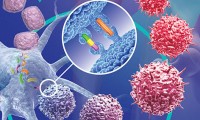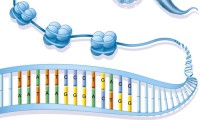-
Loxo Oncology Lands $1.55B Cancer Tie-Up With Bayer
- Source: Biospace
- 817
- November 16, 2017
-
FDA Approves Genentech’s Alecensa Lung Cancer Treatment
- Source: Pharmpro
- 596
- November 9, 2017
-
Cancer cells destroyed in just 3 days with new technique
- Source: medicalnewstoday
- 670
- November 8, 2017
-
FDA approves first treatment for certain patients with Erdheim-Chester Disease, a rare blood cancer
- Source: Worldpharmanews
- 439
- November 8, 2017
-
Merck, Pfizer launch Bavencio for rare skin cancer
- Source: Pharmatimes
- 484
- November 7, 2017
-
Men with low testosterone less likely to have prostate cancer
- Source: medicalnewstoday
- 568
- November 7, 2017
-
Cancer-detecting start-up Grail is seeking more funding, mere months after raising $900 million
- Source: Cnbc
- 457
- November 2, 2017
-
New Use of A.I. Accurately Detected Cancer 86 Percent of the Time
- Source: inverse
- 715
- November 1, 2017
-
Novartis Slams Down $3.9B for This French Cancer Biotech
- Source: Biospace
- 796
- October 31, 2017
your submission has already been received.
OK
Subscribe
Please enter a valid Email address!
Submit
The most relevant industry news & insight will be sent to you every two weeks.













